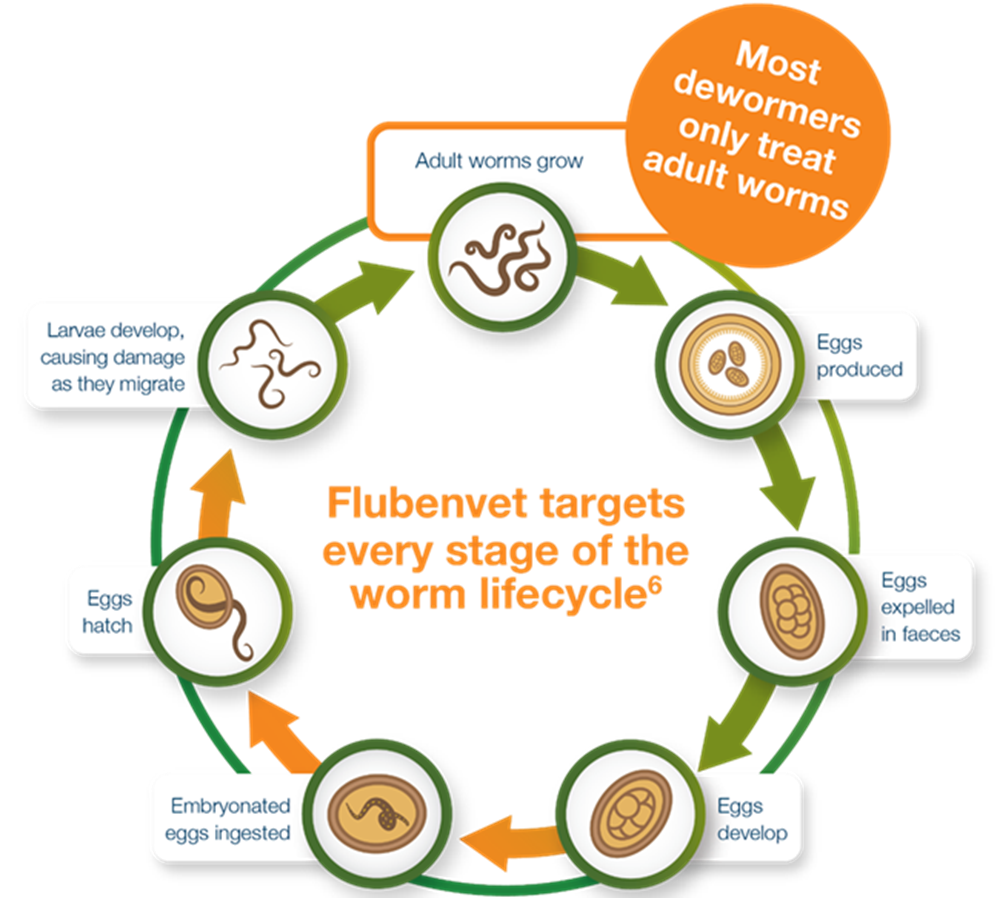Chicken worm burdens increase as wet weather continues
With the prolonged wet weather being experienced in the UK, free range egg producers are being reminded to test regularly for worm burdens and implement appropriate worming programmes.
Director and vet at Sandhill Veterinary Services Ltd., Laura Langstaff, says, “We’re seeing higher worm burdens in free-range laying hens recently as the mild, wet weather provides the perfect conditions for the worm cycle.”
Production losses, shell quality issues, enteritis and in some cases, mortality, can all be consequences of worms. To prevent this, producers should be testing for worms regularly and implementing robust worming programmes which cover their flocks all year round.
Ms Langstaff explains: “As worm egg counts are performed from a relatively small sample of faeces, it’s recommended these are completed in conjunction with post-mortem worm examinations to fully understand levels within the flock.
“Worm eggs can remain infective in both the shed and on the range for long periods, this means burdens can be transferred from one flock to the next and explains why worm monitoring is still important during a housing order,” she explains.
Alongside standard preventative biosecurity measures, Ms Langstaff encourages producers to carry out wet cleaning procedures in poultry houses.
“There’s been an increasing trend towards dry cleaning, but this isn’t going to be successful in removing worm burdens present from previous flocks,” she adds.
“Wet cleaning is a much more effective method as it removes the grease layer, allowing the disinfectant to penetrate more effectively. Selecting a suitable disinfectant which is effective against worm eggs is crucial.

“And don’t forget the range – improving drainage, keeping grass short to allow sunlight to infiltrate and breaking up areas of compacted soil can all help to keep worm levels in check.”
Ms Langstaff says a targeted worming programme is a must. “Following thorough testing via worm egg counts and post-mortems, producers can then work with their vets to put together a worming programme which is right for them,” she explains.
Jeremy Marsh, Elanco layer business manager, reiterates the importance of regular monitoring and selecting an appropriate administration method.
“Producers should be monitoring for worm burdens every six to eight weeks to maintain effective worm control,” he says.
“During periods of high rainfall, producers may have to consider the administration method of the wormer. For example, in water wormers could become less effective, if birds have been drinking from puddles rather than medicated water lines.”

Mr Marsh stresses the importance of targeting worms at all developmental stages.
“By only tackling worms at the adult stage of the lifecycle, you will only address the top layer of the issue. The larvae will still be developing and therefore you’ll never get on top of the problem,” says Mr Marsh.
“Flubenvet™ ,the only wormer that tackles a broad-spectrum of worms, at all stages of the lifecycle, makes it easier to get on top of the rapid reproduction issue and reduces the impacts of worms on bird health and productivity.”
Learn more about Flubenvet
Flubenvet 5% w/w Premix: for Medicated Feeding Stuff contains the active substance Flubendazole 50 mg/g. Flubendazole is a broad spectrum anthelmintic, effective against mature and immature stages and eggs of the following nematodes of chickens, turkeys, geese, partridges and pheasants: In the gastrointestinal tract: Ascaridia galli, Heterakis gallinarum, Capillaria spp., Amidostomum anseris and Trichostrongylus tenuis. In the respiratory tract: Syngamus trachea. Legal category: POM-VPS.
Information regarding the side effects, precautions, warnings and contra-indications can be found in product packaging and leaflet; further information can be found in the Summary of Product Characteristics
Flubenvet™, Elanco and the diagonal bar logo are trademarks of Elanco or its affiliates.